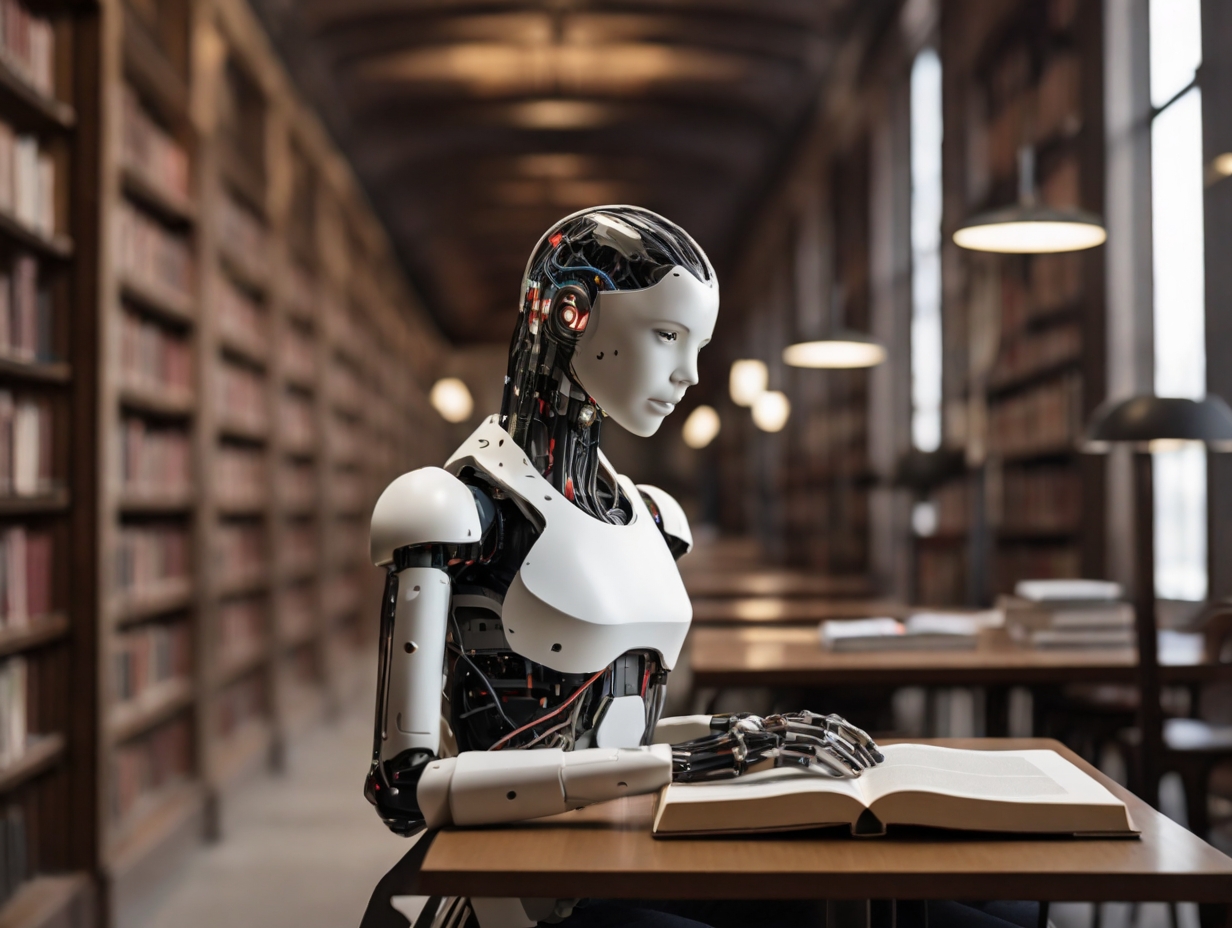Today, artificial intelligence (AI) is both the trigger and the catalyst of library transformations worldwide and pioneers the inventive management methods of knowledge-sharing in business processes, which shift speedily, embarking on the senior experience level. The concept of the library might no longer be limited to only prosaic events that currently abound. Still, it could include the experience of up-and-tiled media, whose role remains an open area for AI.
Innovative applications of AI
AI is one of the libraries’ adaptations, and from now on, the workflow will be streamlined, the multifaceted communities will contribute greatly, and intellectual stimulation will exist. For example, Northwestern University, as well as other entities, bring into play access to machines and facilities that are preinstalled as part of the AI implementation process into libraries.
Furthermore, AI programs carry out the actions of sorting out pictures that are cropped with excessive or unruly content and enforcing the existing school order, which can be a site where an AI insect is used in an Iowa school district to get rid of things that are counter student code of conduct.
AI technology plays a big role in libraries’ content development, so readers will enjoy and experience different learning. This is given that AI technology in education is expected to continue to develop. The Immersive Room is what the Central Public Library of Singapore has considered as either software or an application that may be run on a computer system used to compose one’s story in the 21st century.
Library Changning, located in China, lets borrowers pick theirs from the books organized under AI assistance and also starts renting the world’s first intelligent robots at desks that serve visitors. These books provide male and female characters with role models that will help them increase their interest in other genres, thereby getting the most appropriate books for every young reader.
Empowering critical thinking
With the opportunity and advantage of using AI for efficiency and speed, issues also have to exist, including how AI will function as a duplicator of the pollution of fake news arising among people. Beyond a shadow of a doubt, libraries are more than books; libraries have a vital role to play, and such roles must include AI radars and critical thinking- complementary tasks. The main purpose of The Library in Sharjah is the strategic use of digital elements when reminding the community about search literacy and thinking of your well-being by knowing that giving misinformation in digital media is a destructive thing.
The role of AI to libraries warrants a thorough examination of possible benefits it might bring mainly to library operations. This idea is set forth to ease students’ process of accepting the role played by AI and Data science at the University of Texas so that such students may be included in their practices.
For example, the university becomes the contemporary reaction to the wave of technological progress (a wild guard). Additionally, the new coursework that would incorporate AI would render the search process easy not just for the students and librarian but also by themes of resources and tools availability.
AI is an everlasting technology. Libraries will surely expand their disposal and framework designed for this completely useful task and decide what threats they may bring to the future. Workers will get more and more accuracy standards and tools by choosing and using such AI in their different job areas. Through this process, they can complete their tasks and bring the best services to the community.
AI implementation across libraries is taking these entities from the haven of certainty and peacefulness to the mecca of intellectual freedom and knowledge. Shared activity drastically enhances the delivery and communication of AI at libraries on issues like funding, procurement, and community engagement.
Facilitating a variety of channels where these social media addicts can have their voices heard will help libraries to be relevant and adaptive to our modern society, where information is mostly digitalized. This, in turn, implies that libraries will have a future that focuses on integrating AI with planning and foresight.
Land a High-Paying Web3 Job in 90 Days: The Ultimate Roadmap
